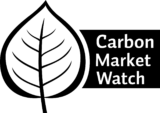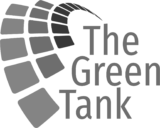EU must stop subsidising polluters with hundreds of billions in free emissions allowances, green groups demand
Even though the European Union’s Emissions Trading System has already issued over €200 billions in free emissions permits, the European Commission is proposing hundreds of billions of euros of additional free allowances for polluting industries. Europe must scrap these pollution subsidies and make polluters pay the true price of their pollution, environmental NGOs urge EU environment ministers.

The revision of the EU’s Emissions Trading System (ETS) is on the agenda of Monday’s Environment Council meeting.
In a joint letter, a group of environmental organisations urged environment ministers to uphold the polluter pays principle, as enshrined in EU law, when reforming the ETS. “Polluting for free in times of a climate crisis is untenable,” says Sam Van den plas, policy director at Carbon Market Watch.
Licence to pollute for free
Although the ETS was the first such scheme in the world, it has so far failed to deliver any meaningful reductions in industrial emissions from such sectors as steel, cement and chemicals.
The major cause for this are the €200 billion in free emissions permits which have been issued since 2008, which effectively act as a licence to pollute. Instead of making the polluter pay, these free permits led to windfall profits of as much as €50 billion for energy-intensive industries in a single decade, according to research commissioned by Carbon Market Watch.
Moreover, the continued existence of free allowances threaten the effectiveness of future policies targeting carbon leakage and emissions, such as the proposed Carbon Border Adjustment Mechanism (CBAM).
“The allocation of free allowances represents a market failure that has created virtually no incentive for EU industry to reduce their emissions,” notes Agnese Ruggiero, Carbon Market Watch’s policy officer specialising in industrial decarbonisation. “Extending this for another 14 years will hurt and delay the green transition.”
Rather than abandoning this environmentally destructive and socially damaging practice, the European Commission has proposed to create 5 billion more of these free pollution licences over this decade. At current ETS prices, this would amount to a subsidy of an additional €400 billion to polluting industries.
At present, EU member states show every indication of allowing these free permits to continue to be issued, undermining their own climate ambitions and raising serious questions about economic fairness, as well as social and environmental justice.
Smart and clean investments
The signatories to the letter demand the swift phasing out of free allocation of emissions allowances in the revised EU ETS Directive. “Member states should immediately start auctioning all emission allowances to industries covered by the EU ETS,” urges Van den plas.
The scrapping of these free pollution licences would not only ensure that the polluter pays, it would also reduce emissions by making the price of pollution high enough to encourage energy-intensive industries to shift to cleaner production methods. The resulting financial resources would also help accelerate the green transition and smoothen the road ahead for less privileged members of society.
“The revenues generated from auctioning ETS allowances would bring member states the much needed resources to invest in the green transition while also protecting the most vulnerable households from high energy prices,” explains Ruggiero.
If all allowances were auctioned instead of given for free, member states would be able to generate revenues to spend on protecting vulnerable consumers from soaring energy bills while investing in renewable energy and shifting away from the fossil fuels that are causing these spikes in energy prices.
Note: The signatories to the letter are partners in Life ETX, a project led by Carbon Market Watch which seeks to empower civil society to enhance climate governance around the ETS.










